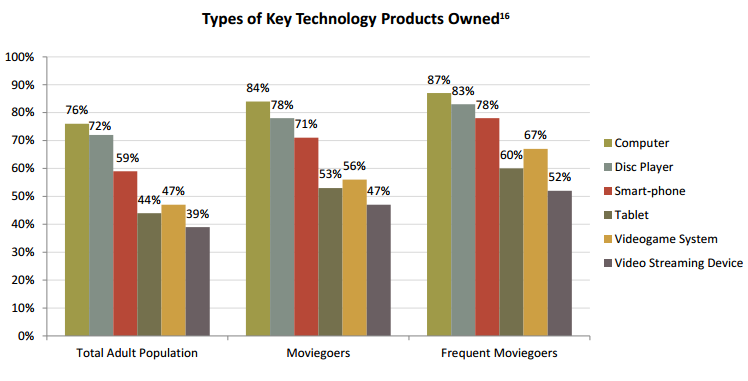TorrentFreak Email Update |
| ‘Fining’ File-Sharers Makes Anti-Piracy Company Lose Money Posted: 26 Mar 2014 10:26 AM PDT
Discovering the real-life identities of pirates is not cheap, and that’s where US-based Rightscorp spotted a gap in the market. By attaching settlement demands to DMCA notices that ISPs are compelled to forward to alleged pirates, Rightscorp can reach alleged infringers without even knowing who they are. Once a warning letter enters the email inbox of an account holder, he or she is invited to visit the Rightscorp website to settle for around $20.00. Some people simply ignore the warnings and nothing else happens. Others choose to pay $20 for say, a single music track, but sometimes discover that Rightscorp has more demands for the rest of the tracks in the album lined up at $20 a pop. But while collecting $20 for sending an email might sound like a winner, financial results for 2013 just published by Rightscorp paint a pretty miserable picture. For the year ending December 31, 2013, Rightscorp reports total revenue of just $324,016. So, presuming all of that revenue came from $20.00 settlements, around 16,200 infringement notices were paid during the 12 month period, or around 311 per week. While this might seem like a decent return for just sending emails, they don’t just appear out of thin air. Rightscorp has costs, lots of them in fact. When an Internet user settles with Rightscorp some of this money goes back to companies such as Warner Bros., who give permission for the anti-piracy company to exploit their content to generate revenue. According to Rightscorp, during 2013 it paid a total of $161,868 to these companies. When we compare that amount with total revenue of $324,016, we can see that Rightscorp gives away $10 from every $20 settlement. On paper it’s money for nothing for the copyright holders, but Rightscorp’s $10 cut just isn’t balancing the books due to the large costs of running the business. Under ‘General and administrative expenses’ the company says it burnt through $1,663,921 in 2013, with ‘sales and marketing’ and ‘depreciation and amortization’ coming in at $275,616 and $33,438 respectively. Add those all together and Rightscorp cost $2,134,843 to run in 2013, yet it brought in just $324,016, a shortfall of more than $1.8 million. After other adjustments the bottom line shows a loss of $2,042,779 for the anti-piracy company, an amount that would take their share of another 204,278 settlements to balance, providing no other costs increased. While the company has expansion plans for Canada and has filed for patents to extend its monitoring services to Europe, China, Israel, Japan, Brazil, and India, the elusive aim of turning piracy into profit is still some way off. Source: TorrentFreak, for the latest info on copyright, file-sharing and anonymous VPN services. |
| MPAA: Moviegoers Use More ‘Piracy-Enabling’ Smartphones Posted: 26 Mar 2014 06:10 AM PDT The MPAA just released their latest box-office statistics. Despite the continuing threat of online piracy the numbers once again show an increase in revenue worldwide, up to a record-breaking $35.9 billion in 2013. In addition to the revenue increase, the movie group emphasizes the importance of new technology in expanding its audience. The MPAA stresses that frequent moviegoers are also technology fanatics, with nearly three-quarters owning at least four new devices. Smartphones are particularly popular among movie fans, and the MPAA notes that the movie industry can do more to use this technology to boost theater attendance even further. "We need to keep exploring fresh ways of leveraging our new technology to drive traffic to your theaters,” MPAA CEO Chris Dodd said at The Colosseum inside Caesar's Palace where the findings were presented. “We can embrace technology, and use it to complement our offerings….A smartphone can make more content available, but it will never be able to surpass the shared experience that you deliver to every person who sits in your theaters," he added.  With the release of these statistics the MPAA wants to show that technology is not just a threat to the movie industry, but also an opportunity. While this is certainly true, the statements are not without conflict. Using smartphones to drive more people to the movies also presents a problem, as the MPAA doesn’t want them to be used inside the theater. The MPAA has previously published a set of anti-piracy practices movie theater owners should adhere to. This includes a very skeptical stance against any device that can be used to capture video, including smartphones. "The MPAA recommends that theaters adopt a Zero Tolerance policy that prohibits the video or audio recording and the taking of photographs of any portion of a movie," MPAA states. "Theater managers should immediately alert law enforcement authorities whenever they suspect prohibited activity is taking place. Do not assume that a cell phone or digital camera is being used to take still photographs and not a full-length video recording," the group adds.  Past anecdotes show that theaters take these recommendations very seriously. A few years ago a girl was arrested for recording a 20 second clip from the movie Transformers on her phone, and more recently a Google Glass wearer was handed over to the authorities, without recording anything. The above is a classical example of the dual role technology plays for the entertainment industries. Nearly every new invention poses both threats and opportunities, and the challenge is to find the right balance between them. Source: TorrentFreak, for the latest info on copyright, file-sharing and anonymous VPN services. |
| You are subscribed to email updates from TorrentFreak To stop receiving these emails, you may unsubscribe now. | Email delivery powered by Google |
| Google Inc., 20 West Kinzie, Chicago IL USA 60610 | |
